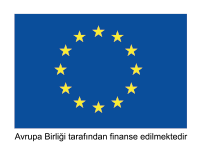
EU TACSO 3 project is organizing an advanced on-line training programme “Theory of Change (ToC) in Organisational Development” for the civil society organisations (CSOs) in the Western Balkans and Turkey (WBT) that will take place on 28 – 29 September 2021.
The training programme aims to provide theoretical and hands-on knowledge to different range of highly capacitated CSOs including National Resource Centres (NRCs), national and regional networks, re-granting organisations, social service providers, capacity building providers etc. Interested applicants are required to demonstrate ability and motivation to apply ToC aspects in their organisational development processes and capacity building support to other CSOs. The training programme will be implemented in English.
The objective of the training is to understand the development effects of applying ToC concept into organisational development of civil society organisations in the WBT region. At the end of the training, participants will be able to:
- Understand the benefits of using the ToC approach in organisational development;
- Increase knowledge on how and when to use ToC approach in organisational development (i.e. planning, strategic decision making, monitoring, evaluation, communication, influencing etc.);
- Make the distinction between ToC in project and organisational development;
- Explore different tools to be used in working on organisational development process according to ToC;
- Review of examples and case studies from practice;
- Apply aspects of ToC in the process of capacity development of CSOs.
In order to ensure effective training with in-depth approach and practical exercises, the number of selected highly capacitated CSOs including National Resource Centres (NRCs), national and regional networks, re-granting organisations, social service providers, capacity building providers etc. for the regional training will be limited (up to approximately 30 representatives of networks/organisations).
Each CSO network or organisation can apply with up to two representatives to attend the regional training. It is expected that proposed participants are working directly on tasks contributing to introduction and adoption of the new approaches in organisational culture and/or provision of services to target groups. The selection will be made by EU TACSO 3 based on the following criteria:
- Organisation demonstrates motivation to increase knowledge and skills in applying ToC aspects in organisational development;
- Organisation clearly demonstrates the need and readiness to introduce and adopt new approaches in organisational culture and/or provision of services to target groups;
- Proposed participants/representative of the organisation is directly involved in the activities contributing to creation and introduction of internal policies and procedures and adoption of the new approaches in organisational culture and/or their application in the provision of services to target groups.
The regional training event will include up to 30 representatives of regional/national CSO networks and re-granting/social service provider/capacity building organisations.
Interested and capacitated CSOs (National Resource Centres, national and regional networks, re-granting organisations, social service providers, capacity building providers etc.) should apply by filling-in and submitting the Application form by Wednesday, 15 September 2021 at 12:00hrs.
Technical Assistance to Civil Society Organizations in Western Balkans and Turkey (EU TACSO 3) is an EU-funded project in the Western Balkans and Turkey (www.tacso.eu). EU TACSO 3 aim is to strengthen the capacity of civil society organizations (CSOs) to actively take part in the democratic processes and to stimulate an enabling environment for civil society and pluralistic media development.

